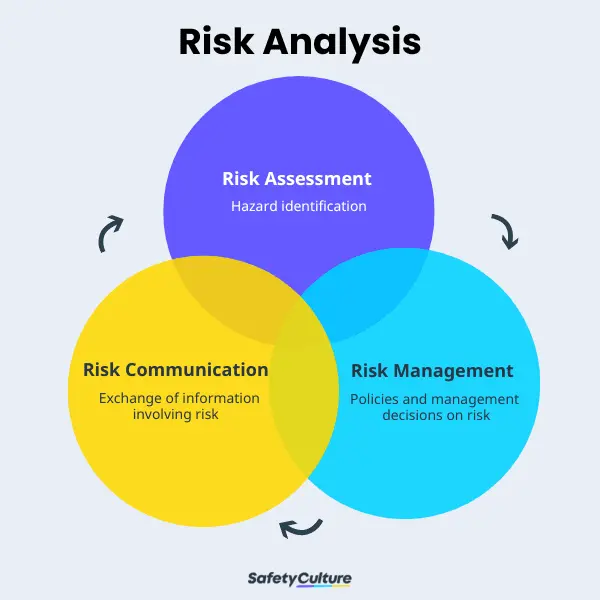How the Importance of Risk Management Shapes Strong Leadership
How the Importance of Risk Management Shapes Strong Leadership
Blog Article
Discovering the Value of Risk Management for Effective Decision-Making Strategies
In the intricate globe of service, Risk Management arises as an essential factor in the decision-making procedure. The capacity to determine prospective hazards and possibilities, and strategize as necessary, can lead to the distinction in between success and failing. With tools such as SWOT and PESTEL, companies are geared up to make educated options, cultivating resilience and adaptability in an ever-changing atmosphere. Wondering how this functions? Allow's unload the dynamics additionally.
Comprehending the Principle of Risk Management
Risk Management, a crucial part in decision-making, is frequently misunderstood or oversimplified. Usually, it describes the recognition, examination, and prioritization of threats to minimize, keep track of, and regulate the probability or impact of unfavorable events. It's not simply about preventing negative end results, but likewise concerning recognizing possible chances. Risk Management entails self-displined and organized approaches, utilizing data and informative analyses. It needs a thorough understanding of the company's context, objectives, and the possible dangers that can combat them. From financial uncertainties, lawful obligations, calculated Management mistakes, to mishaps and all-natural catastrophes, it addresses various threats. Importantly, effective Risk Management is not stagnant; it's a constant, progressive process that evolves with altering scenarios.
The Role of Risk Management in Decision-Making Processes
In the world of strategic planning and organization procedures, Risk Management plays an important duty in decision-making processes. Risk Management thus becomes a crucial tool in decision-making, aiding leaders to make enlightened options based on a thorough understanding of the threats included. Risk Management offers as a crucial component in the decision-making processes of any type of company.

How Risk Management Enhances Strategic Planning
In the context of calculated preparation, Risk Management plays an essential function. Initiating with the recognition of potential risks, it even more includes the implementation of Risk mitigation measures. The function of Risk Management is not fixed however vibrant, as it demands consistent tracking and adjusting of strategies.
Recognizing Potential Risks

Executing Risk Reduction
Risk reduction strategies can range from Risk avoidance, Risk transfer, to run the risk of decrease. Each strategy needs to be tailored to the particular Risk, considering its prospective effect and the organization's Risk tolerance. Reliable Risk mitigation needs a deep understanding of the Risk landscape and the potential effect of each Risk.
Monitoring and Changing Techniques
Though Risk reduction is an essential action in calculated preparation, continual monitoring and modification of these techniques is equally crucial. It also provides a chance to evaluate the success of the Risk Management actions, enabling changes to be made where necessary, more enhancing calculated preparation. Tracking and readjusting Risk Management methods is an important part for improving a company's resilience and tactical planning.
Situation Researches: Successful Risk Management and Decision-Making
In the world of service and money, effective Risk Management and decision-making often work as the columns of flourishing ventures. One such entity is a multinational oil company that alleviated financial loss by hedging against changing oil prices. In an additional circumstances, a technology startup thrived by determining and approving risky, high-reward approaches in a volatile market. A worldwide financial institution, confronted with governing unpredictabilities, efficiently browsed the circumstance with proactive Risk analysis and dynamic decision-making. These cases highlight the worth of astute Risk Management in decision-making processes. It is not the absence of Risk, yet the Management of it, that typically sets apart successful companies from not successful ones. These instances emphasize the important function of Risk Management next in tactical decision-making. importance of risk management.
Devices and Techniques for Effective Risk Management
These devices, such as Risk signs up and warm maps, help in identifying and assessing potential threats. Risk reaction strategies, an essential component of Risk Management, include accepting, staying clear of, transferring, or mitigating threats. With these techniques and devices, decision-makers can navigate the complex landscape of Risk Management, therefore promoting educated and effective decision-making.
Future Trends in Risk Management and Decision-Making Strategies
As we discover the huge landscape of Risk Management, it becomes obvious that the methods and tools utilized today will proceed to evolve. Future fads point in the direction of an enhanced dependence on modern technology, with expert system and equipment discovering playing considerable duties. These technologies will certainly allow companies to forecast potential dangers with greater accuracy and make more enlightened decisions. Furthermore, there will certainly be a growing emphasis on resilience, not just in handling threats the original source however additionally in bouncing back from damaging situations. Finally, the idea of Risk culture, where every member of an organization knows and associated with Risk Management, will get much more prestige. These patterns declare an even more inclusive and proactive approach in the direction of Risk Management and decision-making.
Final thought

Risk Management thus ends up being a crucial device in decision-making, assisting leaders to make enlightened options based on a detailed understanding of the threats entailed. Risk mitigation strategies can vary from Risk evasion, Risk transfer, to run the risk of reduction (importance of risk management). Effective Risk reduction needs a deep understanding of the Risk landscape and the possible effect helpful hints of each Risk. Risk response methods, a vital part of Risk Management, entail approving, preventing, transferring, or mitigating dangers. The concept of Risk society, where every member of a company is conscious and involved in Risk Management, will certainly obtain extra importance
Report this page